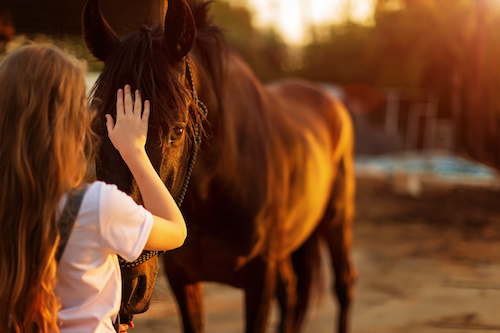Horses are amazing animals that pay close attention to how humans behave, and then they shape their behavior accordingly. When you understand how horses view humans, it’s easy to see how they can build strong connections with them. Veterans often struggle with their mental health, and possibly even a physical or cognitive disability. Resources are available specifically to help Veterans, but there might not be better therapy than connecting with horses. When combined with the help of a professional therapist, horses can help Veterans get back to living a normal life in peace.
How Humans And Horses Interact
Humans and horses have to have a relationship before respecting and appreciating one another. People sometimes won’t get near a horse until they know they can trust them, but the truth is horses often don’t trust people until they can get a good sense of their intentions as well. Horses are massive animals that could easily injure even the largest human. As a prey animal, it’s impressive to see the patience and intelligence horses have when interacting with humans. Veterans often see horses as a companion, and when they treat them accordingly, they can develop a trusted friendship along the way.
Mental Health Benefits
Many Veterans develop a cognitive disability over time due to the experiences they faced while serving. When it comes to a Veteran’s mental health, therapists often suggest developing a relationship with a particular horse to create somewhat of a therapeutic relationship and environment. Veterans should notice how the horse reacts to their words and actions and continue acting in a way that creates a soothing and trusting relationship.
Therapists Often Rely On Horses To Help Veterans
Horses will often mirror the emotions of their leader. So when a Veteran creates an initial trusting relationship with a horse, the horse will begin acting as they do. Therapists evaluate this relationship to determine how they can help. For example, horses can sense fear or anxiety in their leader, even if it’s not physically visible. So if a Veteran is fearful in a situation, the horse will demonstrate adaptability, react accordingly, and will be fearful as well. Therapists can then pinpoint particular situations and help Veterans work through exactly what made them fearful or anxious in that moment.
Veterans may need to seek assistance for a physical or cognitive disability they’ve developed over time. Many therapists strongly suggest using horses to help with mental health concerns and to help Veterans develop a sense of purpose. To learn more about this type of therapy and other disability aids, contact Next Day Access today.





